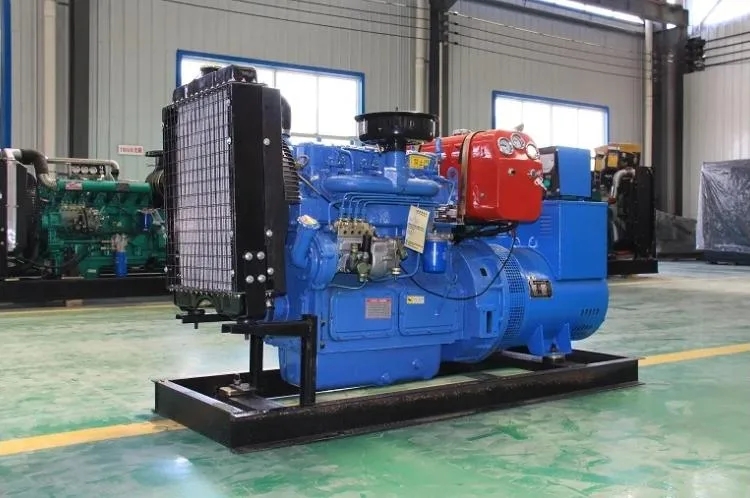Introduction
Diesel generators play a crucial role in providing backup power supply in various industries and applications. From hospitals and data centers to construction sites and remote locations, these robust machines are relied upon to ensure uninterrupted operations. However, like any other mechanical equipment, diesel generators require regular verification inspections to guarantee optimal performance, efficiency, and safety. In this article, we will delve into the importance of verification inspections for diesel generators, the key elements involved in the process, and the benefits they offer.
1. Understanding Verification Inspections for Diesel Generators
A verification inspection for a diesel generator involves a comprehensive evaluation of its components, systems, and overall functionality. The purpose of this inspection is to determine if the generator meets the required standards and specifications set by relevant regulatory bodies. Verification inspections ensure that the generator is capable of delivering the expected power output, maintaining fuel efficiency, and adhering to safety regulations.
2. 50kw diesel generator for mobile clinics of Diesel Generator Verification Inspections
a. Visual Inspection: The inspection process begins with a visual examination of the generator, including its exterior, fuel system, exhaust system, electrical connections, and cooling system. The inspector looks for any signs of damage, leaks, loose connections, or wear and tear. This visual assessment helps identify potential issues that may require further investigation.
b. Performance Testing: Performance testing is a critical aspect of verification inspections. It involves measuring and evaluating the generator's power output, voltage stability, frequency regulation, and response time. Performance testing ensures that the generator is capable of delivering the required power during an outage and maintaining stable voltage and frequency levels.
c. Fuel System Inspection: The fuel system is a vital component of a diesel generator. During the inspection, the fuel tank, fuel lines, and filters are examined for leaks, blockages, and overall condition. The inspector also checks the fuel quality and ensures that the generator is using the correct type and grade of fuel.
d. Electrical System Inspection: The electrical system of a diesel generator is complex and requires regular inspections. The inspector examines the electrical connections, wiring, circuit breakers, control panels, and transfer switches. This inspection helps identify any loose connections, faulty components, or potential electrical hazards that could affect the generator's performance or safety.
e. Cooling System Inspection: The cooling system plays a crucial role in maintaining the optimal operating temperature of the generator. The inspector evaluates the radiator, coolant levels, hoses, and fan belts to ensure proper functioning. Any signs of leaks, blockages, or coolant degradation are addressed to prevent overheating and potential engine damage.
f. Exhaust System Inspection: The exhaust system of a diesel generator is responsible for expelling harmful gases and minimizing noise levels. During the inspection, the inspector checks the exhaust pipes, mufflers, and emission control devices for leaks, corrosion, and compliance with environmental regulations. This inspection helps maintain safe working conditions and ensures compliance with emission standards.
g. Safety Inspection: Safety is paramount when it comes to diesel generators. The inspector evaluates the overall safety measures, including the presence of fire suppression systems, emergency stop buttons, proper ventilation, and warning signs. Additionally, they check for potential hazards such as loose or exposed wires, fuel spills, and improper grounding.
3. Benefits of Diesel Generator Verification Inspections
a. Enhanced Performance: Regular verification inspections help identify and address any issues that may affect the performance of the diesel generator. By ensuring that the generator is in optimal condition, these inspections contribute to uninterrupted power supply and prevent unexpected breakdowns or failures.
b. Improved Efficiency: Verification inspections allow for the identification of inefficient components or systems within the generator. By addressing these inefficiencies, such as fuel leaks or clogged filters, the generator's fuel consumption can be optimized, resulting in cost savings and reduced environmental impact.
c. Extended Lifespan: Regular maintenance and verification inspections significantly contribute to extending the lifespan of diesel generators. By detecting and addressing potential issues early on, the generator's components can be properly maintained and replaced when necessary, preventing major breakdowns and costly repairs.
d. Compliance with Regulations: Verification inspections ensure that the diesel generator meets all relevant safety and environmental regulations. This helps organizations avoid penalties, legal issues, and reputational damage that may arise from non-compliance.
e. Enhanced Safety: Safety is of utmost importance when it comes to diesel generators. Verification inspections identify potential safety hazards and ensure that all safety measures are in place and functioning correctly. This reduces the risk of accidents, fires, and injuries in the workplace.

f. Peace of Mind: Knowing that a diesel generator has undergone regular verification inspections provides peace of mind to both business owners and operators. This confidence in the generator's reliability and safety allows organizations to focus on their core operations without worrying about power interruptions or equipment failures.
Conclusion
Diesel generator verification inspections are crucial for ensuring optimal performance, efficiency, and safety. By conducting thorough inspections of various components and systems, organizations can identify and address potential issues, comply with regulations, and extend the lifespan of their diesel generators. The benefits of these inspections extend beyond uninterrupted power supply, encompassing improved efficiency, cost savings, compliance, and enhanced safety. Emphasizing the importance of regular verification inspections for diesel generators is essential for organizations relying on these machines for their critical power needs.
